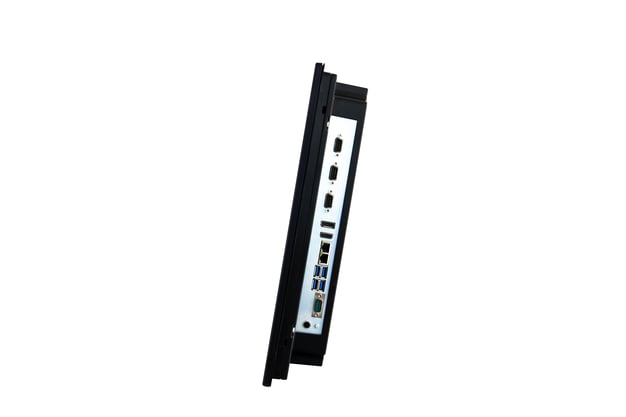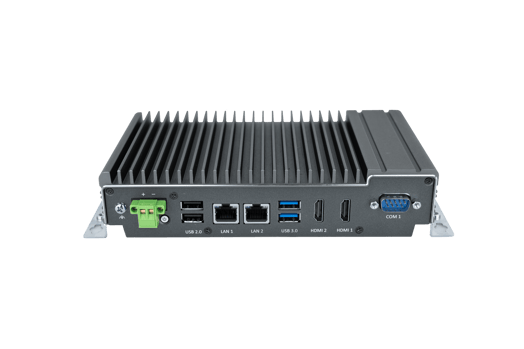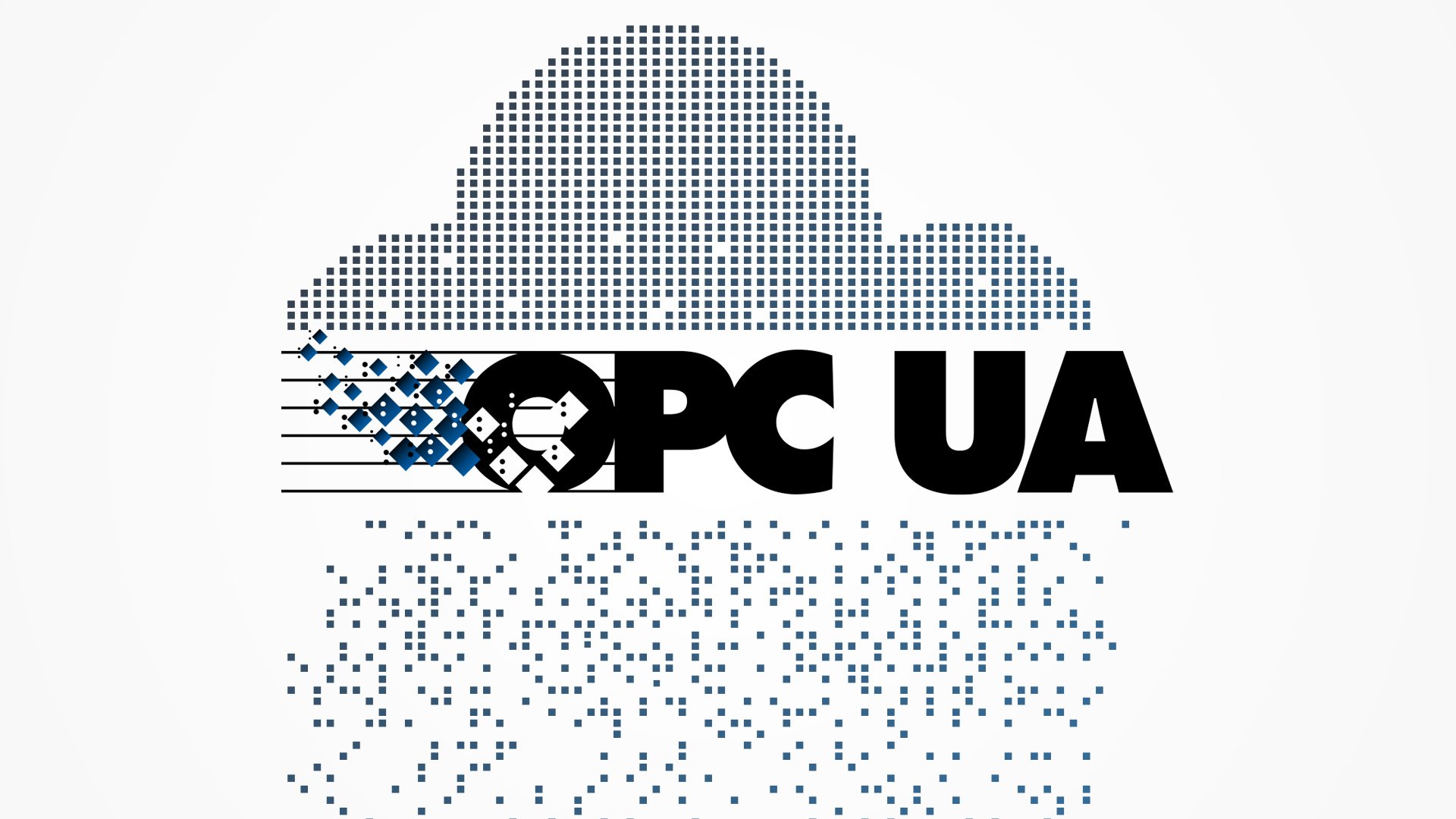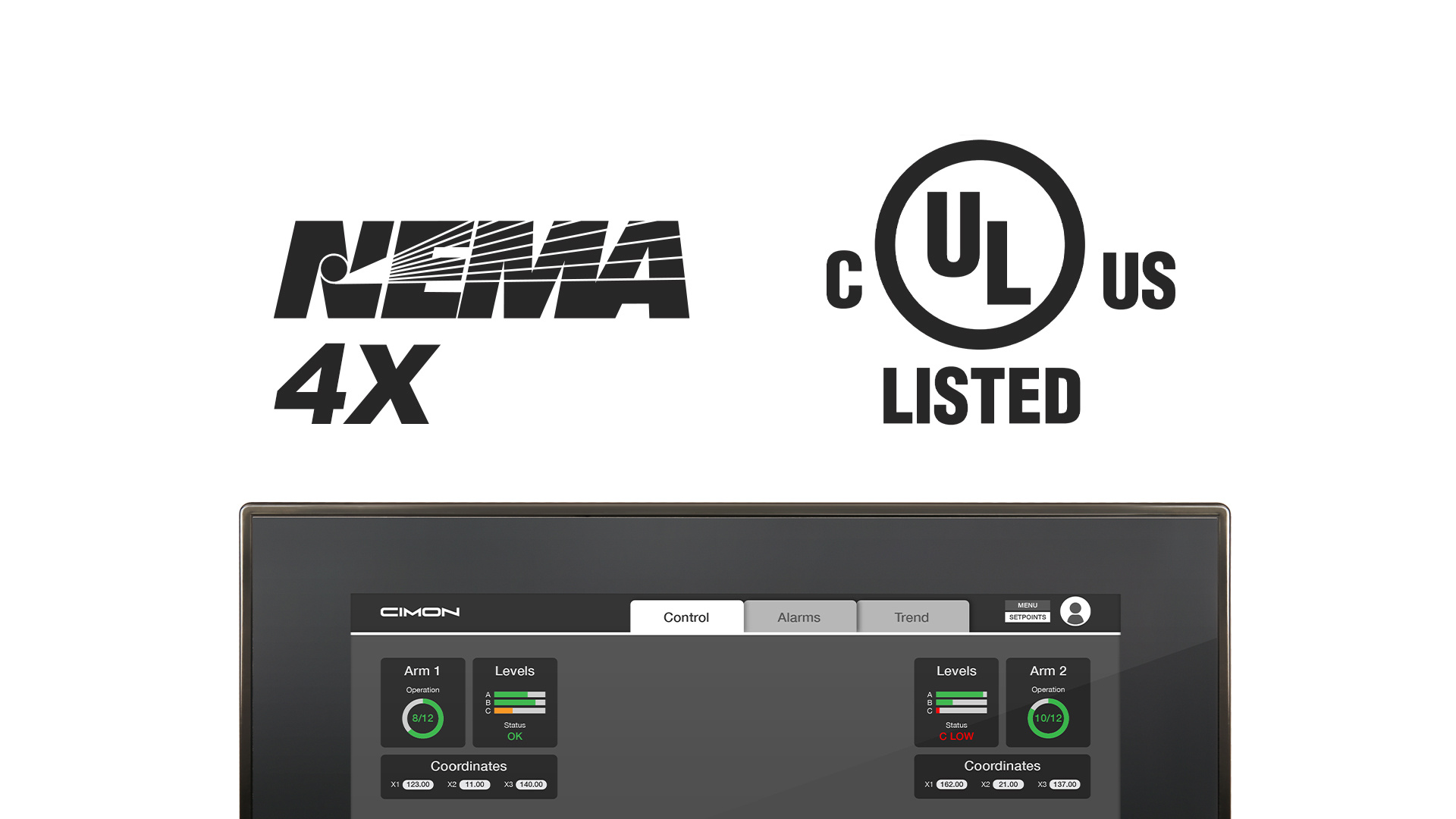What is an IPC? A Closer Look at the Industrial PC and its Uses
.jpg?width=800&height=533&name=AdobeStock_602130573%20(1).jpg)
An industrial PC (IPC) is a rugged, highly reliable computing device specifically designed to run reliably in harsh industrial environments where conventional computers would fail. Such environments can include locations with extreme temperatures, dust, moisture, and vibration. IPCs play a crucial role in a wide range of applications such as machine automation, manufacturing equipment, and autonomous robotics, to name a few.
The key advantages of IPCs are their high reliability and durability. Equipped with fanless cooling technology, they operate silently and eliminate a common point of mechanical failure. IPCs with cableless connections can ensure minimal loose parts and add to the overall system durability. Additionally, they are designed to be resistant to dust and water intrusion, making them ideal for challenging industrial environments.
The Difference Between an Industrial PC and a Commercial Desktop Computer
An IPC differs from a conventional desktop computer or laptop due to its specific use case scenarios. Despite having similar internal components like a CPU, memory, and storage, the distinguishing factor lies in the rugged design elements of an IPC which enhance its reliability and precision, making it ideal for industrial applications. Here are some design aspects that contribute to the performance and stability of IPCs, which are essential for evaluating their durability when integrating them into an automated system:
Resistance to Dust and Particulates: IPCs are engineered with an express focus on deployment in environments like factory automation or mining operations, which are often laden with dust and foreign matter. To guard against these challenges, IPCs feature rugged designs that eliminate the need for cooling vents, thus safeguarding against dust and other particles that might compromise its functionality.
Form Factor: Given their use in extreme factory conditions, IPCs are subjected to various factors such as temperature fluctuations, vibrations, and power surges, which could potentially damage an average computer. As a result, the internal components of IPCs are constructed from robust alloy materials that can endure high temperatures and vibrations. The external casing commonly comprises a sturdy aluminum chassis which functions as a heat sink, dissipating heat from key internal components like the CPU, memory, and storage.
Temperature Tolerance: Many industrial applications demand computers capable of functioning in extreme temperatures. Since dust can lead to the failure of computers with fans, IPCs employ a fanless system design that uses heat sinks and heat pipes to maintain a wide range of operable temperatures. This design enables IPCs to operate in challenging environments with uncontrolled temperatures, ensuring functionality in both extremely cold and hot conditions.
Components: Frequently, industrial PCs incorporate industrial-grade components that have undergone thorough testing and validation to ensure operational resilience in harsh industrial settings. Every part, ranging from the PCB motherboard to the electrically soldered capacitors, is meticulously selected and incorporated into a final industrial PC design that is prepared for large-scale deployment in factories
IP Ratings: IPCs are not just dust proof, but they can also be water-resistant up to certain limits. The objective for a durable and reliable computer is to minimize the risk of failure, particularly from dust and water exposure. For example, in industries like food production and chemical processing, automation machinery and its accompanying computers are frequently cleaned using hot water jets or cleaning substances. Thus, most IPCs employed in such environments incorporate varying levels of IP protection in their design and even use special M12 connectors to prevent water damage..jpg?width=683&height=532&name=Untitled%20drawing%20(3).jpg)
Commonly Used IPC Ports
One of the more common IPC ports would be the serial port, used to maintain communication with older devices, which are still operational in modern factories. Although the data transfer speed isn't the fastest, their reliability has been verified over numerous decades. The traditional serial port functions in three distinct interfaces - RS-232/422/485, with the specific interface employed varying based on the connected devices and application needs.
Video ports are essential to generate a display output. Among the prevalent types are VGA, DVI, HDMI, and DP. VGA ports are frequently utilized since they transmit analog signals, facilitating connectivity with older devices. On the other hand, the newer DVI, HDMI, and DP ports may not have legacy compatibility, but they compensate for this with their superior resolution and refresh rate capabilities.
Digital Input/Output and General Purpose Input/Output (DIO/GPIO) are interface types employed when dealing with electrical devices or sensors lacking a standard interface. They operate on digital signals that typically signify ON or OFF states, making them suitable for detecting switch states in industrial contexts where numerous ON/OFF signals need to be exchanged. Their application is broad, spanning from alarm sensors to automated production lines.
With the rising need for greater bandwidth, many IPCs now feature ethernet ports. They feature smart power management that can put idle devices to sleep, which enables connection to multiple ethernet ports without excessive power consumption. However, they aren't the ultimate solution for every IPC, as legacy serial ports, ethernet ports and even USB ports may be needed depending on the application.
Local Area Network (LAN) ports deliver a wired network connection of up to 1 Gigabit per port. A majority of IPCs are equipped with LAN ports for data uplink and downlink from the network infrastructure, facilitating necessary data transmission from various devices such as HMIs, PLCs, cellular data routers, and ethernet switches.
Panel PC vs. Box PC
Panel PCs are all-in-one computer systems that incorporate a flat-screen display or touchscreen interface embedded within a larger panel, often mounted for convenience. They provide an efficient, user-friendly interface for a variety of applications, including processing, equipment integration, and data visualization across various industrial and commercial environments. Panel PCs feature a robust design, enabling them to withstand harsh industrial conditions. Their comprehensive feature set, which includes enhanced data logging and visualization capabilities, makes them a practical choice for numerous industrial applications.
In contrast, Box PCs come in box-shaped enclosures and typically lack a built-in screen. They are often fanless to minimize mechanical failure points and to operate quietly. The internal components of Box PCs are generally similar to those of regular PCs, with modifications catering to their specialized use. While Box PCs are rugged and functional, they necessitate additional equipment like monitors, and thus may not provide the seamless, all-in-one experience that Panel PCs offer. However, it's important to note that a Box PC's exact specifications and features can greatly vary based on the manufacturer and specific model.
A unique advantage of the Box PC's dual-component configuration—where the display is separate from the computer—is the simplification of repairs and troubleshooting. In demanding industrial environments, displays can be frequently damaged, necessitating complete replacement in the case of Panel PCs. With a Box PC, however, only the screen needs to be replaced, making it potentially more cost-effective for repairs.
Furthermore, Box PCs offer greater flexibility when unique screen sizes are required. Whether there's a demand for a smaller display without compromising processing power, or a larger screen than what's available with Panel PCs, Box PCs cater to a broader spectrum of screen size requirements.

Considerations For Buying an Industrial PC
IPCs surpass regular desktop PCs in durability, reliability, and performance. Specifically, their ability to function optimally in harsh environments is unmatched. Therefore, when considering a purchase, it is important to evaluate these factors to ensure the computer meets your industry-specific needs.
Visit the CIMON website to explore more about our IPCs, and to find the perfect solution tailored to your needs. With a wide array of IPCs, we strive to cater to all your industrial automation needs.



